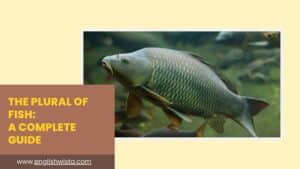Have you ever stopped in the middle of writing or speaking and thought, “Wait… what’s the plural of series?” You’re not alone! English can be tricky, especially when it comes to words that don’t follow the usual patterns. Some plurals add an -s (like book → books), others change completely (like child → children), and then there are words that stay exactly the same in both singular and plural forms.
The word series falls into that last group, and that’s what makes it a little confusing. But don’t worry by the time you finish reading this article, you’ll feel completely confident about how to use series in both singular and plural contexts. We’ll go step by step, look at lots of examples, and even sprinkle in some fun facts.
Let’s get started!
What Does “Series” Mean?
Before we dive into plurals, it helps to understand what the word series actually means.
A series is a group or sequence of things that come one after another and are connected in some way.
Here are a few common uses:
- A TV series: a set of connected episodes that tell a story.
- A book series: a group of books with the same characters or theme.
- A lecture series: several talks on related topics.
- A math series: a sum of numbers in a particular order.
So whenever you see series, think of something that comes in a sequence or collection.
What Is the Plural of Series?
Here’s the quick answer:
The plural of series is… series!
Yes, that’s right. The word doesn’t change. Just like species or sheep, the singular and plural forms of series look the same.
- Singular: This series is my favorite.
- Plural: These series are very popular.
The trick is not in the spelling it’s in how you use the words around it.
How Do You Know If Series Is Singular or Plural?
Since the word itself doesn’t change, you have to pay attention to the context. The clue usually comes from the verb or the article used.
Singular form:
- “A new series is starting tonight.”
- “That series was filmed in Italy.”
Here, the words a and is tell us it’s singular.
Plural form:
- “Several series are available on the platform.”
- “Those series have won awards.”
Here, the words several and are tell us it’s plural.
So, the word itself stays the same, but the sentence gives you the hint.
Common Mistakes With the Plural of Series
Because English learners (and even native speakers) expect plurals to look different, people sometimes make mistakes with series.
Mistake 1: Adding an extra “s”
❌ serieses
This is incorrect. You don’t need to add anything to series to make it plural.
Mistake 2: Treating plural as singular
❌ “The two series is popular.”
✅ “The two series are popular.”
Remember: when you’re talking about more than one, match it with a plural verb.
Real-Life Examples of Series in Sentences
Let’s look at some practical examples.
Talking about TV shows:
- “Friends is a classic comedy series.” (singular)
- “Netflix has released many new series this year.” (plural)
About books:
- “Harry Potter is a famous fantasy series.”
- “I’ve read several mystery series.”
Talking about events:
- “The university is hosting a lecture series on climate change.”
- “Several lecture series are planned for next year.”
Talking about sports:
- “The World Series is an important baseball event.”
- “Over the decades, there have been many World Series.”
Why Does Series Stay the Same in Plural?
Now you might be wondering: Why doesn’t the word change?
The answer lies in the history of the word.
The word series comes from Latin. In Latin, words ending in -es often kept the same form for both singular and plural. English borrowed this word and kept that pattern.
That’s why words like species, series, and means don’t change between singular and plural. They are called zero plural nouns (nouns where singular and plural look the same).
Is Series Countable or Uncountable?
This is another common question.
The word series can be countable or uncountable, depending on how you use it.
- Countable: “I watched three series last month.” (You can count how many.)
- Uncountable: “The whole series was exciting.” (You’re talking about one collection as a whole.)
So it’s flexible it works in both ways.
Comparing Series With Other Similar Words
Let’s compare series with other tricky words:
- Species: “This species is endangered.” / “Many species are endangered.”
- Means: “A simple means of travel is walking.” / “Different means of communication exist.”
- Sheep: “One sheep is grazing.” / “Ten sheep are grazing.”
Notice the similarity? All of them look the same in singular and plural.
Fun Facts About the Word Series
Here are some light extras to make this more interesting:
- The World Series in baseball doesn’t actually involve the whole world it’s mainly played in North America. The name comes from a newspaper called the “New York World” that sponsored it.
- In mathematics, series is different from sequence. A sequence is just a list of numbers, while a series is the sum of them.
- The plural of TV series often confuses people online. You might see posts asking “What are your favorite TV series?” which looks strange but is completely correct!
Quick Tips to Remember the Plural of Series
Here are some easy memory hacks:
- Think of series like sheep: no change in plural.
- Look at the verb (is vs. are) to see if it’s singular or plural.
- Never write serieses it doesn’t exist.
- If you’re unsure, try replacing it with another zero-plural noun like species and see if it makes sense.
Practice Time: Can You Spot the Correct Sentences?
Let’s test what you’ve learned.
Which of these sentences are correct?
- The detective series is on my watchlist.
- I love watching different serieses at once.
- These two series are my all-time favorites.
- A new series are starting next week.
Answers:
- ✅ Correct.
- ❌ Wrong (should be “series”).
- ✅ Correct.
- ❌ Wrong (should be “is starting”).
Conclusion
So, what have we learned? The plural of series is simply… series. It doesn’t change. The only way to know if it’s singular or plural is by checking the other words in the sentence, like verbs (is/are) or numbers (one/two).
To recap:
- Series stays the same in singular and plural.
- Use context clues to understand the number.
- Don’t add extra letters like serieses.
- Think of it like species or sheep.
Now you can confidently use series in your writing and conversations without second-guessing yourself. Next time you recommend a TV series to a friend, or talk about multiple lecture series at school, you’ll know exactly how to say it right.
And that’s the beauty of English it may be tricky, but once you get the hang of patterns like this, it becomes much easier (and even fun!) to use.



